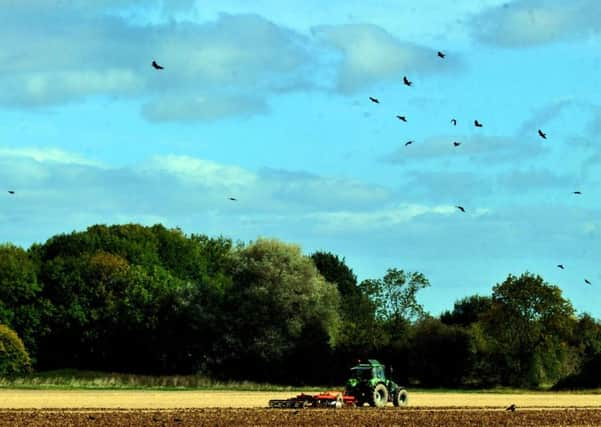‘Agriculture Bill lacks any shred of substantive law’, says Baroness Anne McIntosh
This article contains affiliate links. We may earn a small commission on items purchased through this article, but that does not affect our editorial judgement.


Britain’s exit from the European Union gives Ministers the power to shape domestic farm policy for the first time in more than 40 years but Baroness Anne McIntosh said a regulatory approach to the process was denying MPs and peers from closely scrutinising the proposed details of future farm policies.
The Agriculture Bill was due to be brought before the House of Lords last month during its passage through Parliament but it has been delayed and the Bill is currently awaiting a date for its third and final reading in the House of Commons.
Advertisement
Hide AdAdvertisement
Hide AdBaroness McIntosh of Pickering told The Yorkshire Post that she was concerned the Bill was too “skeleton” in nature, enabling the Government to merely lay down regulations that allow it to set new policy.
Much of the policy detail is omitted, she said, and this limits the level of scrutiny that can be undertaken by MPs and peers, about how future policies will impact upon farming livelihoods and enable a progressive industry.
Baroness McIntosh said: “While the enabling Bill follows the normal practice for passing legislation with a lengthy process of three readings and a committee stage in both Houses of Parliament, the fact the details will be set out in subsequent regulations deprives MPs and peers from scrutinising closely the details of proposed legislation set out in the regulations to see how it will impact, in this case, farmers, landowners and growers.
Advertisement
Hide AdAdvertisement
Hide Ad“Normally, amendments are considered and voted on and often the draft bill can be improved and clarified as to how it will apply in practice.”
Baroness McIntosh added that two House of Lords committees had now heavily criticised the Government for producing a Bill which effectively contains little policy.
She added: “It is alarming that the Government is prepared to sweep away the usual powers of parliamentary scrutiny of the policy, thereby depriving farmers of the ability to influence the drafting of proposals to make them more suitable.
“It is clear that farmers and growers want a policy that has been thoroughly thought through. Yet the Agriculture Bill does not contain even an outline of the substantive law that will replace the Common Agricultural Policy (CAP) once the UK leaves the EU.”
Advertisement
Hide AdAdvertisement
Hide AdEnvironment Secretary Michael Gove defended the scope of the Agriculture Bill during an evidence session of the Lords’ Rural Economy Committee this week in which he said the Government was better serving rural interests than it had in the past.
“It’s perfectly possible to see that the Agriculture Bill as a matter of policy should have many, many more provisions within it which deal with a huge variety of areas that relate to agriculture, entirely legitimate, but the nature of the Bill was specifically to ensure that we created a framework to replace the CAP,” Mr Gove said.
So far it is known that the Government intends to phase out direct support payments for farmers and replace them with payments for the delivery of ‘public goods’ linked to environmental gains.
Mr Gove was also challenged by the Lords committee on whether the potential impact of the Bill’s provisions on the rural economy had been thoroughly examined – or “rural proofed”.
Advertisement
Hide AdAdvertisement
Hide AdThe Minister responded, saying: “It would be a mistake to think... that the Bill wasn’t rural proofed because it didn’t do everything that could be done in order to safeguard and enhance the rural economy.”
He added: “It was and is continuing to be (rural proofed) because one of the things about the Agriculture Bill... is that it’s a framework bill. What it sets out to do is to make sure we have the means necessary to replace the CAP with new methods of agricultural support.
“But even as we did that it wasn’t just the case that we were designing a set of levers without thinking when they were pulled, where they would lead. We are thinking very hard about changing methods of support.”
Mr Gove added that as Whitehall develops proposals for future farm policy there was constant reference to interest groups and affected sectors, constant questioning of officials and constant contact with MPs and other representatives of rural areas.
Advertisement
Hide AdAdvertisement
Hide AdA Defra spokeswoman said: “The Agriculture Bill will enable us to replace the EU’s outdated and unfair Common Agricultural Policy with a modern system of farm support suited to our own needs.
“It will allow us to make payments to farmers for those goods the public values. The Agriculture Bill will also give Parliament far more ability to scrutinise decisions over farming policy than it ever had during EU membership, when decisions were too often presented as a fait accompli.”
